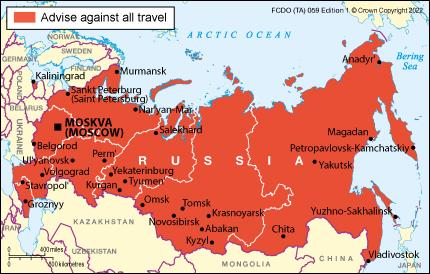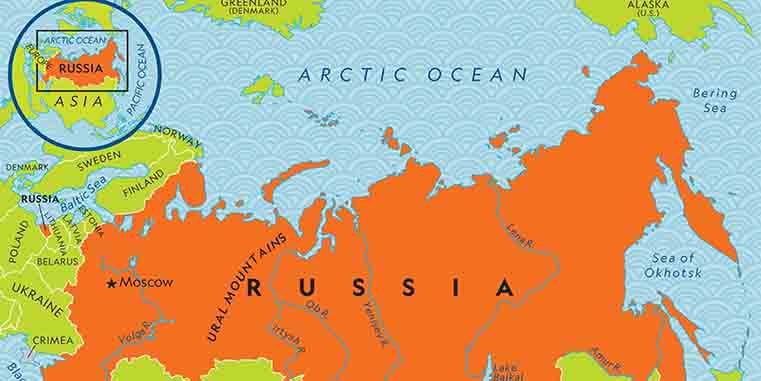In the latest turn of events, Russian officials have issued a stark warning to the United States, signaling that escalating tensions could lead to dire consequences for both nations. The Kremlin has underscored that a deterioration of relations might not only impact bilateral ties but could also destabilize global peace. Key points raised include:
- Heightened Military Engagement: Increased military activity on both sides could provoke misunderstandings, risking accidental confrontations.
- Economic Sanctions: Continued sanctions might lead to retaliatory measures, further straining economic interactions.
- Regional Conflicts: Escalation could spill over into existing regional conflicts, complicating diplomatic resolutions.
Despite this caution, Russian diplomats have emphasized their willingness to maintain dialog, asserting that open channels for communication are crucial in mitigating risks. They have called for consistent engagement and pragmatic discussions to address mutual concerns. Among the proposals on the table are:
- Regular Diplomatic Meetings: Establishing a routine of high-level discussions to address critical issues and rebuild trust.
- Crisis Hotlines: Implementing direct lines of communication for immediate resolution of potential misunderstandings in military operations.
- Joint Initiatives: Collaborative efforts in areas such as arms control and counter-terrorism to foster cooperation.
Navigating Tensions: The Importance of Diplomatic Dialogue
As geopolitical tensions rise, the importance of maintaining open lines of communication cannot be overstated. In light of recent warnings from Russia regarding the potential escalation of conflicts with the United States, both nations are reminded of the critical role diplomatic dialog plays in mitigating misunderstandings. For instance, discussions can help clarify intentions and reduce the risk of actions that may be misinterpreted as provocations. Key elements of effective diplomatic dialog include:
- Active Listening: Engaging in dialogues where both parties feel heard and understood.
- Clear Communication: Articulating positions and concerns to avoid ambiguity.
- Building Trust: Establishing a rapport that can withstand the pressures of disagreement.
The diplomatic channels remain crucial in navigating this complex landscape, as the specter of escalation looms. Russia’s cautionary stance not only highlights the seriousness of the situation but also underlines their commitment to dialog as a means to prevent a downward spiral into conflict. In this context, maintaining a focus on diplomacy serves several purposes:
- Conflict Prevention: Addressing grievances before they escalate further.
- Stability Assurance: Ensuring that both sides can pursue national interests without fear of unintended consequences.
- Long-term Solutions: Working towards sustainable solutions rather than short-term fixes to complex issues.

Strategic Communication: How Both Sides Can Avoid Misunderstanding
In the intricate dance of diplomacy, clear and consistent communication plays a pivotal role in mitigating tensions. The recent remarks from Russia underscore the necessity for both nations to refine their messaging to avoid potential pitfalls. Misunderstandings can arise from ambiguous language or actions perceived as threatening. To foster a more constructive dialog, both parties should prioritize:
- Active Listening: Engaging in dialogues where both sides express their viewpoints without interruption or preconceived judgments.
- Clarification of Intent: Prioritizing explicit statements regarding military actions and policies to prevent assumptions and misinterpretations.
- Regular Consultations: Establishing formal channels for ongoing communication can help address concerns before they escalate into crises.
By focusing on establishing a common ground through transparent interactions, both nations can navigate their complex geopolitical landscape with greater confidence. Additionally, it is essential for leaders to remain aware of the broader implications of their words and actions. They must consider how domestic audiences and international observers will interpret their statements, which can influence public perception and policy. Emphasizing respect and understanding in communications can pave the way for a de-escalation of tensions and a more stable international environment.
Future Scenarios: Balancing Deterrence and Engagement in US-Russia Relations
The intricate dance between Washington and Moscow continues to evolve, as Russia issues warnings to the United States about potential escalatory measures in both military and diplomatic arenas. The Kremlin has expressed concern that increased NATO activities near its borders could lead to miscalculations, emphasizing the need for careful diplomacy to prevent conflicts from spiraling out of control. In a series of recent statements, Russian officials have highlighted crucial factors that could help maintain stability in the region, including:
- Effective communication channels to avoid misunderstandings.
- Arms control negotiations that build mutual trust.
- Collaborative approaches to address global challenges, such as climate change and cybersecurity.
Simultaneously, Russia is keen to keep diplomatic avenues open, advocating for a systematic dialog that counters the prevailing narratives of hostility. The approach underscores a recognition that while deterrence remains a key component of national security policy, engagement is equally vital for constructive bilateral relations. Analysts suggest that the ability to balance these two aspects could pave the way for essential negotiations on various fronts, such as nuclear disarmament and regional conflicts. Key elements in this strategy include:
- Regular bilateral meetings between officials to facilitate dialog.
- Public communication aimed at reducing incendiary rhetoric.
- Joint initiatives that focus on global security, enhancing cooperative frameworks.
